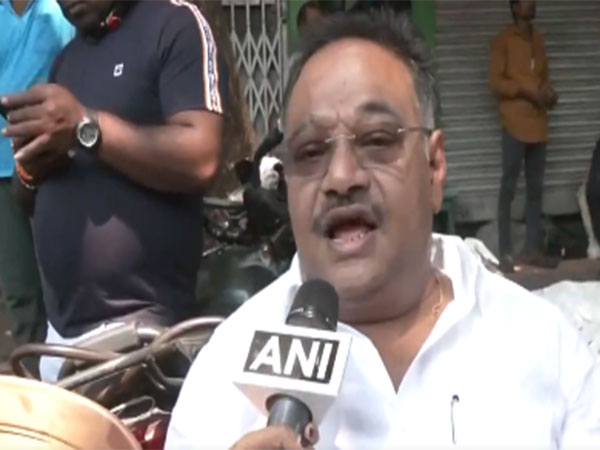Pak: Judge recuses himself from case on 'external interference' in judicial affairs
Apr 12, 2024

Islamabad [Pakistan], April 12 : Justice Yahya Afridi, one of the judges from the seven-member bench hearing the case on the alleged interference of Pakistan intelligence agencies in judicial affairs, recused himself from the suo motu case taken up by the Supreme Court, Geo News reported on Thursday.
Justice Afridi, who was part of the seven-member bench hearing the suo motu case taken up by the Supreme Court in the wake of letter written by Islamabad High Court (IHC) judges citing complaints of interference in judicial affairs by intelligence agencies, mentioned his recusal in a note with the written order issued following the first hearing.
Citing his reason for the recusal, the judge maintained that the matters raised in the IHC judges' letter should be viewed in accordance with the Supreme Judicial Council's code of conduct, Geo News reported.
"High Courts are independent courts under the Constitution. Article 184/3 should not be invoked on independence of high courts," Justice Yahya maintained.
The seven-member bench conducting the hearing of suo motu case is headed by Chief Justice Qazi Faez Isa and comprised six other judges -- Justice Syed Mansoor Ali Shah, Justice Yahya Afridi, Justice Jamal Khan Mandokhel, Justice Athar Minallah, Justice Musarrat Hilali and Justice Naeem Akhtar Afghan.
During the first hearing of the matter on April 3, the country's top judge said the SC will not tolerate any interference in judicial affairs and is taking the letter by Islamabad High Court judges "very seriously".
Justice Yahya, in his note, maintained that the suo motu notice was taken by the apex court in "good faith", however, it may harm the independence of high courts and their chief justices.
Meanwhile, SC's Justice Athar Minallah also included an additional note which mentioned that he "could not convince himself" to agree with paragraphs one to 12 of the written order.
In his note, the apex court's judge maintained that "interference" in cases with political implications cannot be ruled out.
The judge added that the court itself has accepted the same in the Zulfiqar Ali Bhutto reference, while the Asghar Khan case is also enough to see the extent of the interference.
Terming the IHC judges "whistleblowers", Justice Minallah insisted that the letter of the judges shows that they kept raising the issue at every relevant forum. However, the "institution" did not respond despite the seriousness of the matter.
The high court judges did what a judge is bound to do by oath, he stated, adding that there is no reason to doubt them.
On March 25, six judges of the Islamabad High Court (IHC) had demanded Chief Justice of Pakistan Justice Qazi Faez Isa convene the Judicial Convention to consider the matter of interference of intelligence operatives in the judicial functions or intimidation of judges in a manner that undermined the independence of the judiciary.
The IHC judges, including Justice Mohsin Akhtar Kayani, Justice Babar Sattar, Justice Arbab Muhammad Tahir, Justice Tariq Mahmood Jehangiri, Justice Sardar Ejaz Ishaq Khan and Justice Saman Rifat Imtiaz, wrote a letter to the chief justice, who is also the chairman of the Supreme Judicial Council (SJC), Geo News reported.
After the letter went viral and considering the gravity of allegations it mentioned, the chief justice called a meeting the same day with the IHC chief justice and all the judges after Iftar at 8pm at his residence during which the concerns of all the judges were heard individually.




















